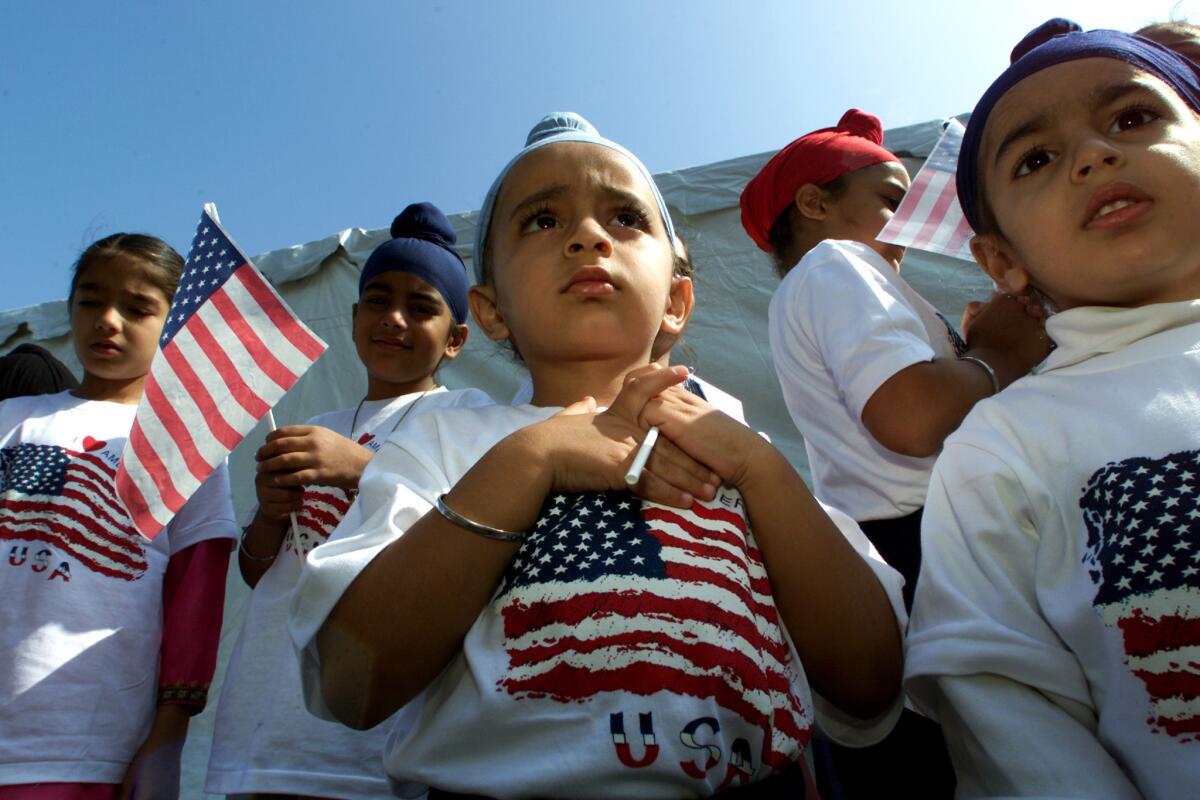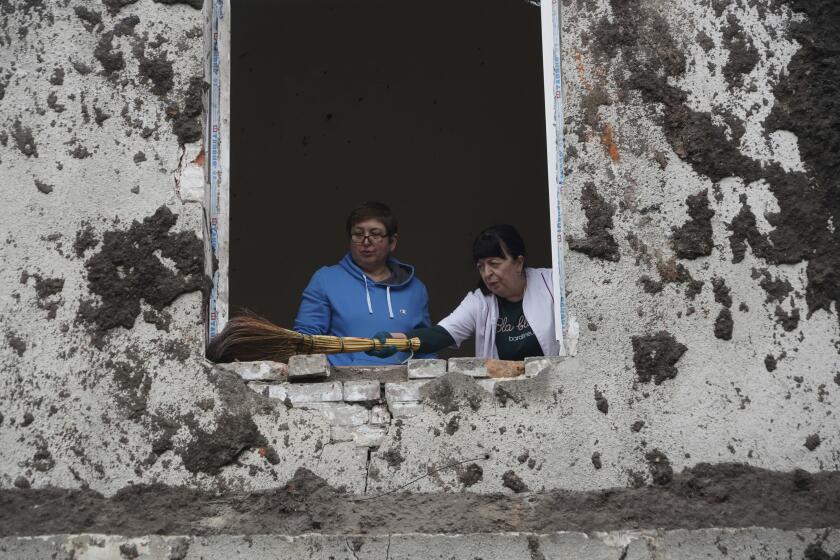#AfterSeptember11 shares heartbreaking stories of racism, prejudice and pain

Harnadar Singh, 4, center, and other children prepare to say the Pledge of Allegiance on Oct. 10, 2001, at the Sikh Temple of Orange County in Santa Ana, at a ceremony to remember the victims of terrorist attacks.
Sept. 11 is a painful day, when America is reminded of attacks on innocent people.
But for some Americans, attacks continue.
Those people are now telling their stories, with the #AfterSeptember11 hashtag. It’s a collection of more than 50,000 heartbreaking accounts of people who say they were targeted for being Muslim – or often, just for having brown skin.
Many of the writers were children when the attacks occurred, and their tweets reflect the impact that day had on their young lives. Participants tell of their families being afraid to wear hijabs or other cultural clothing in public, or of being eyed with suspicion from an early age.
Others told of violence to them or their family members. One said that her father shaved his face and stopped wearing a turban that Sept. 13 after being assaulted at work. Others had even worse stories to tell.
The hashtag was created by Jessica Talwar, a 19-year-old political science student at Loyola University in Chicago and who tweets as @jesstalwar. In an email to the Los Angeles Times, she explained that the tag was created to share some of the effects of 9/11 that many have missed. “America needs to recognize that the trauma and repercussions of these attacks were not confined to the day of September 11, 2001 itself,” she wrote. “Desis, Arabs, and Muslims have felt the impact of this day for 14 years”.
As Talwar says, the effects have been felt by non-Muslims as well. Indian American poet Hari Kondabolu wrote on Twitter that his mother put a U.S. flag on their house because she feared that people would throw rocks through the window.
In 2013, the word “terrorist” was spray-painted on the walls of a Sikh temple in Riverside, only one year after a deadly shooting at another Sikh temple in Wisconsin. And on Tuesday night, Inderjit Singh Mukker was driving to a Chicago grocery store when people called him “Bin Laden,” reached into the car, and punched him in the face repeatedly, knocking him out. He was released from the hospital after being treated for bruising, blood loss and a fractured cheekbone.
The hashtag, which began trending Thursday night, has not been without its detractors. Soon after its creation, angry tweets infiltrated the conversation, with people using racial slurs and threatening to kill Muslims. Talwar said that others were less violent, but were still angry that people of color were speaking about their pain.
Talwar said that one woman tweeted at her to “give America our moment.” Talwar said she felt as if her citizenship were being “stripped away,” as if she was not allowed to be American. “It was as if there was some rigid dichotomy between American society and the South Asian, Muslim, and Arab communities,” she wrote.
“This movement was not intended to belittle the tragic events of September 11 itself,” she added, saying that she also participates in annual moments of silence and prayer services to remember innocent lives lost that day. But, “as innocent Americans who are equally disgusted by the trauma of these events,” she said it was “inexcusable” that communities of color should have to endure continual attacks based on their ethnicity or religion.
When Talwar told her father that she had made the #AfterSeptember11 hashtag, he was immediately concerned that she would be the target of Islamophobic attacks. “Be smart. Not loud,” he texted to her.
“Well, my response to him is, why not smart and loud?,” she wrote.
“It’s exhausting, insulting, and dehumanizing trying to modify our cultures or religions to appease ignorance, fear, and prejudice,” she continued.
“And our communities are going to use our God-given voices to announce that.”
Follow me @dexdigi for more on the intersection of culture and the Internet.
Start your day right
Sign up for Essential California for news, features and recommendations from the L.A. Times and beyond in your inbox six days a week.
You may occasionally receive promotional content from the Los Angeles Times.




